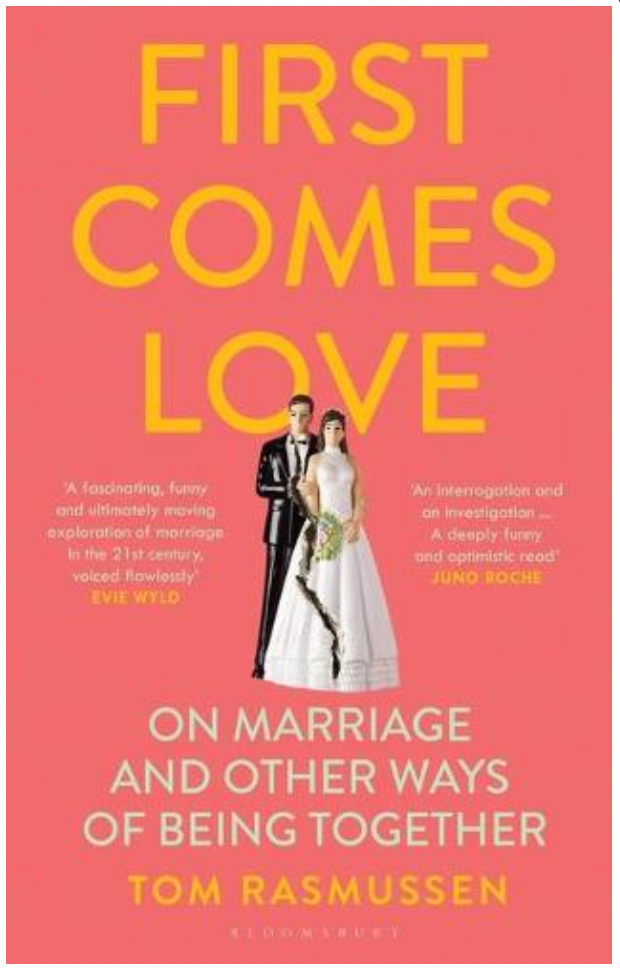The last thing I did before lockdown two years ago was attend the National Wedding Fair. You’re reading this so you can’t hear my tone of voice but know that before *National Wedding Fair* I took a sharp, distressed in breath and afterwards I let out a disappointed sigh. I was there doing field research (how very Kate Hudson in How To Lose A Guy in 10 Days) for my book First Comes Love, about what has become arguably the most important thing about weddings today: money.
AdvertisementADVERTISEMENT
The average cost of a UK wedding today is £32,000. But inordinately priced weddings weren’t always the way. If we go back to the 1950s, a wedding would have cost about 70 quid, or about £2,250 in today's money. Like with most things under advanced stage capitalism, the wedding industry has exploded over the last three decades and your perfect, memorable day, which is supposed to be about uniqueness and love, has instead become about spending to mirror what has been sold to us by popular culture, dreadful influencers and irresponsible, grotesque royals. We spend in order to fit in. In order to make our day not stand out as cheap, tasteless or disappointing.
Now, I’d expected luxury from the wedding fair. Perhaps it signals how immature I am, or how little money my family had growing up, but I’d assumed that £32,000 would get you very, very far. Turns out, it doesn’t get you much. What I’d imagined to be a space for the ultimate in luxury was a travelling circus of late capitalist delights: Ikea flatpack weddings, prosecco with added glitter and a row of booths offering pre-wedding surgery consultations.
It was harrowing. Not because I felt judgemental towards those who were there, trying to plan their perfect day; it’s not our fault we were told to be obsessed with Carrie Bradshaw and judged if we don’t get married in the right way. But I was deeply shocked that this, in the greyest convention centre known to humanity, was the best capitalism could do. This was the most it could make out of the day most people spend their lives dreaming about?
AdvertisementADVERTISEMENT
I, like many, spent my youth collecting wedding inspiration in a little shoebox. I got married (as a wife) in my primary school playground. I dreamed of being the perfect princess (even though it remains not legally possible for me as a non-binary person to get married). Now I see a lot of my friends — both close, and Facebook — spending at the national average on their wedding days and I know it’s money they don’t have.
I fled the wedding fair and grabbed a tuna melt panini — delicious! — in a nearby windowless cafe. After I’d taken the edge off, I headed home where I sunk deep into a dark paper trail of wedding brochures, budget-busting solutions and insolvent wedding planners who’d gone under years ago but hadn’t taken their ads off Google as I tried to figure out why we’ve done this to ourselves.
Why have we forced ourselves into a corner where we spend our life savings on a day just because it’s what everyone else is doing? We’re told our wedding day is unique and uniquely special but to the wedding industry we are just another paycheque. And it’s fine if you’re rich, no bother. But if you grew up working class like me, ritzy, pricy weddings are practically demanded despite the fact that divorce — which 49% of marriages end in — increases the likelihood of poverty for women by 33%.
AdvertisementADVERTISEMENT
I decided the only way to work out my deep distress was to interview the world’s most expensive wedding planner, who told me that the key to any good wedding was heart and showcasing the (emotional) values of the couple. It wasn’t money (easy for her to say), it was thought. She told me that the best weddings were the ones where the couple had understood that it is in fact a day about them, not about catering to everyone else’s needs.
Now, her advice sounds trite because it is. But perhaps triteness is the only way forward, since unpicking spend from weddings is harder now than ever, especially with such a huge industry and so many independent businesses which rely on it to survive – businesses which have spent the last year in particular struggling to keep going.
But if you choose to marry, a cheaper wedding can be done. It requires work to unpick what you want and what you can afford from what is expected. The first step is to ask whether this particular institution is one you want to buy into at all. The second, if you decide to do so, is to choose what you want. Not what you’re told to want.
First Comes Love is out 8th July on Bloomsbury Publishing
AdvertisementADVERTISEMENT







